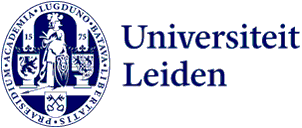Rector Magnificus Hester Bijl on Palestine event: ‘Let’s have an academic debate with room for different perspectives’
There’s been a lot of commotion about the ‘Apartheid in Israel’ panel discussion being cancelled. The organisers, Students for Palestine, wanted to hold this at Leiden University’s Wijnhaven building in The Hague on 21 March. The Executive Board would only allow the event to go ahead if guarantees could be given that our house rules would be followed. This would mean an open academic debate with room for the different perspectives in the room. In a reaction, Rector Hester Bijl explains the considerations.
In the course of last week, the Executive Board became aware of the format of the event, for which a room booking request had been submitted shortly before. It would be a panel discussion about a very sensitive political topic. The Board considers it important that such discussions are balanced and well-supervised, and the moderator plays an important role in this. The lecturers who had booked the room were not otherwise involved in organising the event. The University’s Chief Security Officer tried – at the request of the Executive Board – to consult with the student organisers, but this proved unsuccessful.

Not a political platform
In a response Rector Bijl said the following: ‘We then decided that the meeting would not be able to go ahead in that format. That was a difficult and painful decision. We firmly support academic freedom and appreciate that debates can be heated. But we’re not a political platform. An academic debate can only be open if people with a different perspective feel able to speak out and if the moderator in these kinds of sensitive issues is preferably impartial. This event that was to be held in The Hague did not comply with our house rules for events such as these. There were also objections from students who did not agree with the format. We must be able to guarantee the safety of all students at this type of event. As the organisers could not provide any clarification, and there was great time pressure, we decided that the panel discussion would not be able to go ahead in this form. That is unfortunate, but such a sensitive event does have to be prepared very carefully – preferably in mutual consultation.’
The Executive Board did look for a solution and supported the idea of appointing another moderator to allow the event to go ahead after all. The Dean of the Faculty of Humanities, Professor Mark Rutgers, offered to moderate the debate. The organising students let it be known via an intermediary that they did not want this. There was a lot of protest on social media and a petition was started.
Talk to one another
Bijl understands that many people are disappointed and outraged. ‘It’s a pity that things turned out as they did. As we could not have a proper conversation with the organisers and as the event was to take place so soon, we had to quickly decide that it could not go ahead. In hindsight, we would have liked to have consulted the academic community more widely on this issue and have spoken to the moderator sooner. We were only able to speak to her afterwards. I also think that it is urgent that we define the conditions for an academic debate together. At the same time, it is important that the organising party also takes responsibility and is willing to discuss the matter.
‘Of course, I don’t want students and staff to feel discouraged from organising things now. Our university remains a place for open academic discussion. I firmly support that. But “responsibility” is also one of our cores values. Freedom comes with responsibility: people with different perspectives must be able to have their say in a debate, and feel welcome to do so. Based on what we knew and the information we received from another group of students, we did not have the impression that this condition had been met.
‘I think it is important to have a discussion in the near future with the students who organised this panel. I also want to start a discussion with our academic community about academic freedom and the way we wish to give shape to this. This could be in a symposium on the topic, for instance.’
Discussion has hardened
Bijl notes that, just like in society, the discussion within and about the University has hardened. ‘Debate is the essence of a university. But let’s do so without harsh personal attacks on one another. This is what happened to the staff involved in this issue. They received extreme personal attacks on social media, and I really don’t think this is acceptable. Let’s make sure together that all students and staff feel safe to speak out and do their work. We realise that it was also difficult for the students who organised this to speak out and get in touch with us. We would like to do something about that too.’
The Students for Palestine panel meeting was held on 21 March, at a location outside the University.
